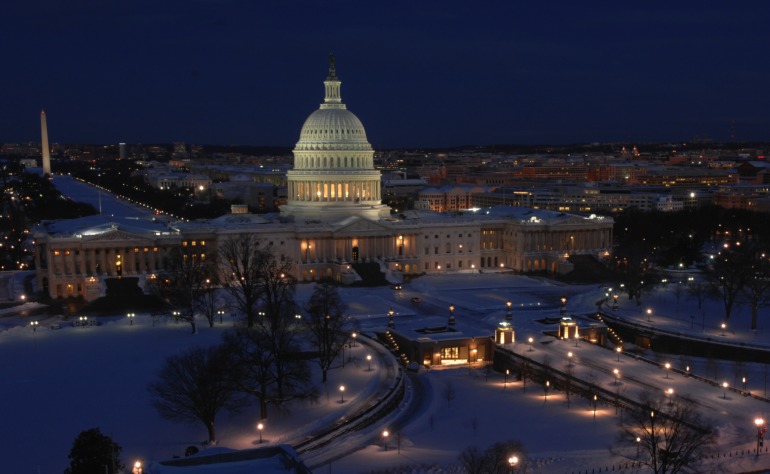Legal Update
Jan 13, 2022
OSHA ETS Stayed Again — Supreme Court Characterizes ETS as Public Health Measure Outside of OSHA’s Jurisdiction
Seyfarth Synopsis: On January 13, 2022, the Supreme Court stayed enforcement of OSHA’s COVID-19 Vaccination and Testing Emergency Temporary Standard (“ETS”), pending further litigation in the U.S. Court of Appeals for the Sixth Circuit. The Court asserted that OSHA has failed to show evidence of “grave danger” in many industries, and absolves employers of the requirement to ensure that unvaccinated employees engage in weekly testing. Separately, the Court voted to uphold the CMS mandate.
We previously published a legal update regarding the Supreme Court’s extraordinary Special Session where it held oral arguments addressing the Sixth Circuit’s decision to overturn the Fifth Circuit’s temporary stay of the ETS, pending a resolution on the merits.
In a 6-to-3 decision, the Supreme Court blocked the Biden Administration’s vaccine-or-testing rule for private businesses, a rule which requires virtually all employers with at least 100 employees to mandate workers be vaccinated or obtain a medical test at their own expense and time, as well as wear a mask in the workplace. The mandate applies to 84 million workers and, as the majority opinion asserts, is unlike anything Congress and OSHA have ever imposed. The issue of the stay was before the Court, but not a final determination on the merits. In reinstituting the stay, the Supreme Court called into question not only OSHA’s authority to issue a general standard, but rather to issue regulations affecting overall public health.
The majority’s decision turned on the reach of OSHA’s occupational jurisdiction versus a broader public health measure. “Administrative agencies are creatures of statute,” and the Court found that OSHA possesses only the limited workplace-related authority that Congress provided, not the authority to oversee and control overall public health. The Court held that the authority to order nearly 84 million Americans to either obtain a COVID-19 vaccine, or undergo weekly testing at their own expense was not within the everyday exercise of OSHA’s power. The majority’s opinion recognized the risk posed by COVID-19 but argued that COVID-19 is a universal risk and not specific or consistent across all covered workplaces. Therefore, even though COVID-19 presents a risk within the workplace, the Court refused to extend the Agency’s power to allow it to regulate overall public health of employees.
Justices Gorsuch, Alito, and Thomas issued a concurring opinion finding that the ETS was unlawful as a Major Question that the constitution left to Congress to decide. The concurrence thereby focuses on the constitutionality of the ETS, rather than its permissibility under the OSH Act. If this reasoning makes its way into the decision on the merits, it may be used to invalidate other OSHA standards and federal agency decisions.
Justices Stephen Breyer, Sonia Sotomayor, and Elena Kagan dissented, arguing OSHA does have authority to deal with emergency conditions, and that the stay limits the Agency’s response to protect worker safety from a disease that continues to mount.
Separately, in a 5-to-4 decision, the mandate for the Centers for Medicare & Medicaid Services was allowed to take effect. This mandate requires vaccines for health care workers at hospitals and other medical facilities that participate in certain Federal programs. Justices Clarence Thomas, Samuel Alito, Neil Gorsuch and Amy Coney Barrett dissented.
What Does This Mean for Employers?
The ETS remains stayed and returns to the Sixth Circuit for the decision on the merits. The end of the per curiam opinion details the upcoming process:
OSHA’s COVID–19 Vaccination and Testing; Emergency Temporary Standard, 86 Fed. Reg. 61402, is stayed pending disposition of the applicants’ petitions for review in the United States Court of Appeals for the Sixth Circuit and disposition of the applicants’ petitions for writs of certiorari, if such writs are timely sought. Should the petitions for writs of certiorari be denied, this order shall terminate automatically. In the event the petitions for writs of certiorari are granted, the order shall terminate upon the sending down of the judgment of this Court.
With the ETS set to expire in May, it is unclear whether it will ever become law and again be enforced. The government will need to determine whether to continue to press its merits case at the Sixth Circuit before a possible return engagement with the Supreme Court. But the OSH Act’s General Duty Clause still regulates employers and requires them to address COVID-19 hazards in the workplace. OSHA has cited many employers for COVID-19 hazards under the General Duty Clause, respiratory protection standard, and record-keeping regulations. Employers should be mindful that they are still required to abate COVID-19 hazards, and can look to CDC and OSHA guidance.
To assist, we remind employers that Seyfarth has prepared an ETS Checklist, as well as a Chart comparing the ETS, the Safer Federal Workforce Task Force, COVID-19 Workplace Safety: Guidance for Federal Contractors and Subcontractors, and the Centers for Medicare & Medicaid Services, Medicare and Medicaid Programs; Omnibus COVID-19 Health Care Staff Vaccination Regulation. These materials are available for download under the “Additional Resources” section of this page. For more information on this or any related topic please contact the authors, your Seyfarth attorney, or any member of the Workplace Safety and Health (OSHA/MSHA) Team.


